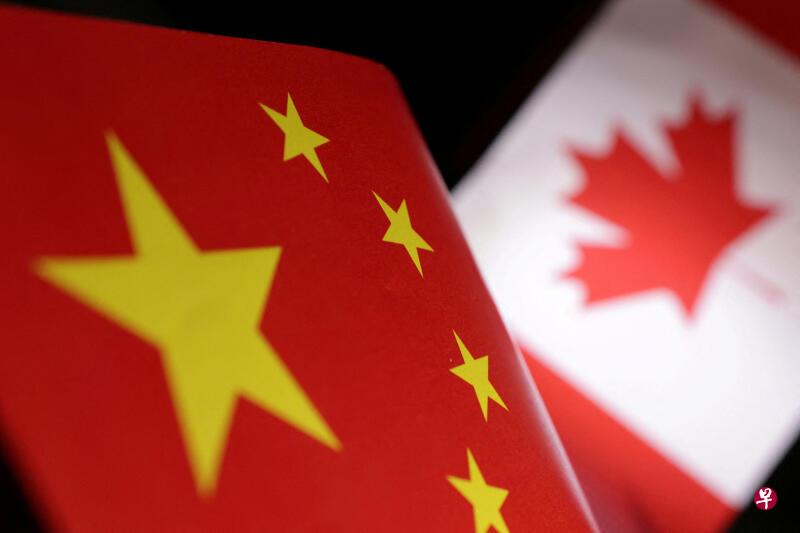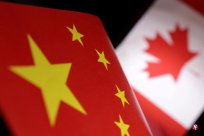
Canada emphasized China's "external intervention and the increasing coercion to other countries" on Sunday.It said: "China is an increasingly destructive power. Our strategy comes from a clear and clear assessment of the reality of China today. In areas with major differences, we will challenge China."
(Ottawa Composite Electric) Canada announced a new Indo -Pacific Economic and Foreign Strategic Plan on Sunday (November 27), which has invested more resources in China that has become increasingly "destructive" in the next five years.However, Canada admits that it is necessary to cooperate with Beijing officials in climate change and trade issues.
This 26 -page document refers to the expenditure of 2.6 billion Canadian dollars (about S $ 2.66 billion), including improving the military deployment and network security of Canada in the Indo -Pacific region, tightening foreign investment regulations to protect smart property.And prevent Chinese state -owned enterprises from acquiring important mineral supply.
At the end of 2018, the Canadian police arrested Huawei's chief financial officer Meng Wanzhou, and Beijing subsequently arrested two Canadians in the charges of spy. The relationship between the two countries was instantly tense.These three have been released last year, but China -Canada relations are still not good.
Earlier this month, Canada ordered the three Chinese companies to sell their sales in the key mineral field of Canada.
The Canadian Sunday emphasizes China's "external intervention and coercion to other countries."It said: "China is an increasingly destructive power. Our strategy comes from a clear and clear assessment of the reality of China today. In areas with major differences, we will challenge China."
But Canada shows that it is necessary to cooperate with this world's second largest economy to jointly respond to climate change, global public health and nuclear diffusion.
Four cabinet ministers introduced the content of the Indo -Pacific strategy at a press conference held by Vancouver. They said that this strategy is essential for Canada's national security, climate and economic goals.
Canadian Foreign Minister Joli said: "We will participate in diplomacy because diplomacy is a force. At the same time, we will be firm, which is why we have determined a very transparent plan to contact China."/P>
She also said: "The future of the Indo -Pacific region is our future, and we can participate in shaping the Indo -Pacific. For this reason, we need to be a real and reliable partner country."
Before the strategic statement was released, Joli said in an interview with Bloomberg that the global geopolitical "constructing sector" was changing.This threatens international norms that have been protecting the world's security since World War II and triggers the uncertainty and inflation of the supply chain.
The Indo -Pacific Strategy in Canada is based on five aspects, namely to promote peace and security, promote trade and investment, promote international assistance in feminism, sustainable infrastructure, and expand diplomatic space.
Canada is seeking relationships with in -depth development and Indo -Pacific countries.The Indo -Pacific region consists of 40 countries, with a economic scale of up to 5 trillion Canadian dollars.
The Trudeau government wants to diversify the trade and economy of Canada.Canada is still highly dependent on bilateral economic and trade with the United States. Official data in September shows that bilateral trade between Canada and China accounts for less than 7 %, while the United States is 68 %.
In addition, Canada will strengthen the existence of the navy in the Indo -Pacific region, and "strengthen Canada's military participation and intelligence capabilities as a means of counter -coercion and confrontation with regional security threats."
Canadian National Defense Minister Aande said that this will include the deployment of three frigates to the area each year, and it is currently two, as well as joint military exercises from Canadian pilots and soldiers to participate in the Indo -Pacific region.
Zhao Lijian: Relevant strategy is full of prejudice against China to blame for unreasonable attacks
On the other hand, a spokesman for the Chinese Ministry of Foreign Affairs, Zhao Lijian, said at a regular press conference on the 28th that the relevant strategic content of China is full of ideological prejudice, rendering the so -called "Chinese threats", and blame China for unreasonable attacks.The Chinese side strongly dissatisfied and resolutely opposed this, and has proposed to the Canada to negotiate solemnly.



